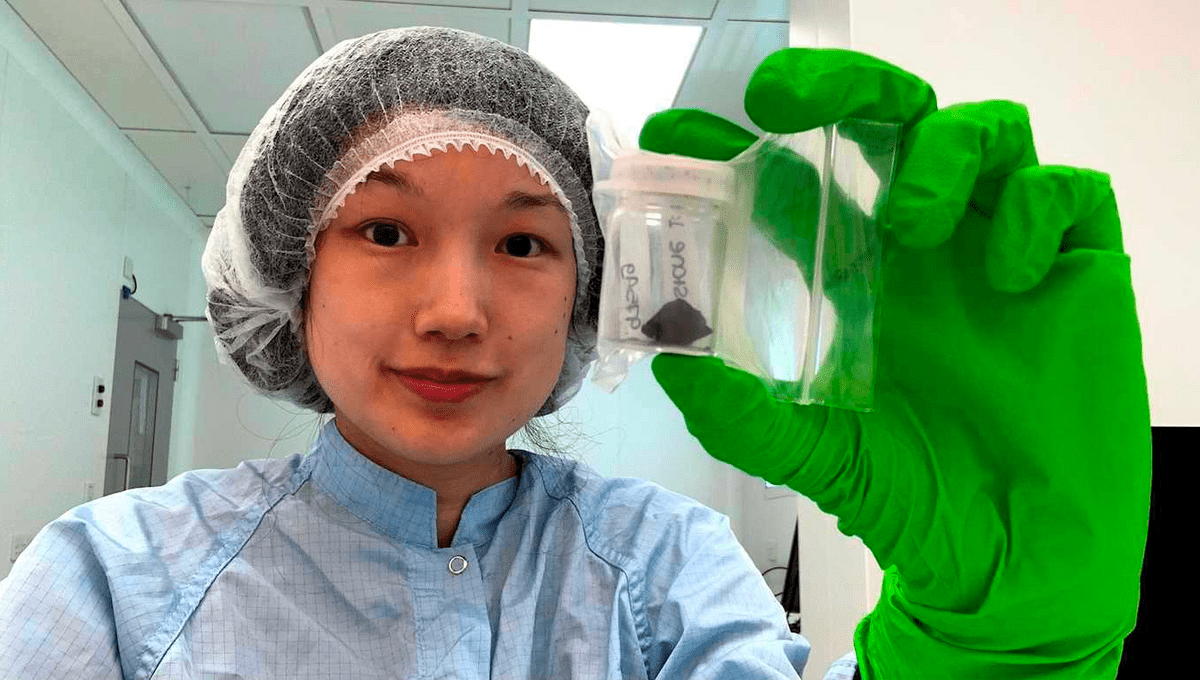
The importance of the UK’s first meteorite in 30 years, collected after being seen falling, has been confirmed with the discovery of amino acids – organic compounds essential for life on Earth. The concentration of amino acids and polycyclic aromatic hydrocarbons (PAHs) is not as high as in some other asteroid remnants (just 1.1 and 6.2 parts per million respectively), but that may make the discovery even more interesting.
The Winchcombe meteorite not only contains organic materials but also appears to represent a new class of meteorites, a new paper reports. Some of the materials in it were altered in ways that suggest at least three short outbursts of liquid water on the asteroid body from which it came.
Meteorites don’t make it to ground without creating a spectacular sky show, at least at night. Thanks to the rise of personal cameras and fireball tracking networks we are now increasingly able to determine objects’ flightpaths, using this to calculate the orbits of asteroids where meteorites come from. When a meteorite’s composition and its former orbit can be matched together, it greatly enhances the potential contribution to understanding solar system evolution. Detail from the UK fireball network made Winchcombe one of the first 40 meteorites whose origins within the asteroid belt could be traced.
Almost immediately, it was clear this was an important find; within two weeks the likely presence of water-bearing minerals was reported. As a carbonaceous chondrite, which make up only 4 percent of meteorites and may have seeded life on Earth, Winchcombe stood out.
“Studying the organic inventory of the Winchcombe meteorite provided us with a window into the past, how simple chemistry kick started the origin of life at the birth of our solar system,” said Dr Queenie Chan of the Royal Holloway University of London in a statement. “Discovering these life’s precursor organic molecules allowed us to comprehend the fall of similar material to the surface of the Earth, prior to the emergence of life on our own planet.”
The fact the first of four surviving pieces was collected within 12 hours of landing, allowing little time for contamination, added to the meteorite’s value. Indeed, because the abundance of organic material in the meteorite was ten times lower than in other carbonaceous chondrites, they might not have been distinguishable from Earthly contamination had it not been retrieved so quickly. As it is, some of the amino acids found are quite rare on Earth, confirming their extraterrestrial origins.
The Winchcombe stones had a number of features never previously seen in meteorites, including low amino acid abundance for a carbonaceous chondrite but unusual ratios among the amino acids and PAHs that are present. Combined with the incomplete conversion of Winchcombe’s components into solid rock, this led the authors to speculate Winchcombe could represent a new class of meteorite that has not been studied before.
Perhaps in part because of its weak structure, very little of the Winchcombe meteorite made it to the ground. Just 600 grams (1.3 pounds) have been recovered, compared to a 27-kilogram (60-pound) carbonaceous chondrite that landed in Costa Rica in 2019. This prevented certain forms of analysis that require bulk samples.
As with most asteroids, it is thought Winchcombe was originally part of a large asteroid, and the piece that hit the Earth’s atmosphere was knocked off in a collision before wandering in space for a long time.
The paper is published open access in Meteoritics and Planetary Science.
Source Link: UK Meteorite That Fell To Earth Contains Building Blocks For Life